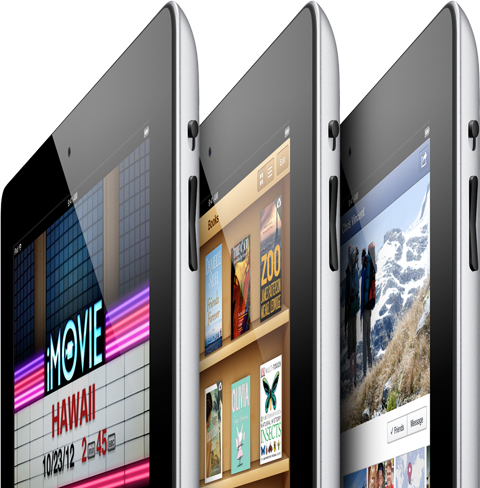
Apple’s new products are all about the competition
To answer my colleague Joe Wilcox’s question, I won’t be buying an iPad mini. I will however, be shelling out on a 4th gen iPad. I already own an iPad 2, and was thinking of upgrading to the 3rd gen version, but I knew an update was likely. Even though Apple only rolled out the most recent iPad in March, there were a few clues that suggested a sooner-than-usual upgrade was on the cards.
Firstly, the Lighting port. On the accessories front alone it’s important for Apple to transition its devices to the new connector as quickly as possible, which means putting it in all of its relevant hardware. Secondly, the 3rd gen iPad gets incredibly hot when doing graphically intensive tasks. The new A6X chip will, I suspect, greatly reduce that problem. Making the iPad faster (while keeping the price the same) will also help position it a little further away from the new mini. However, the main reason for the upgrade is much more straightforward: it kicks the hell out of the competition.
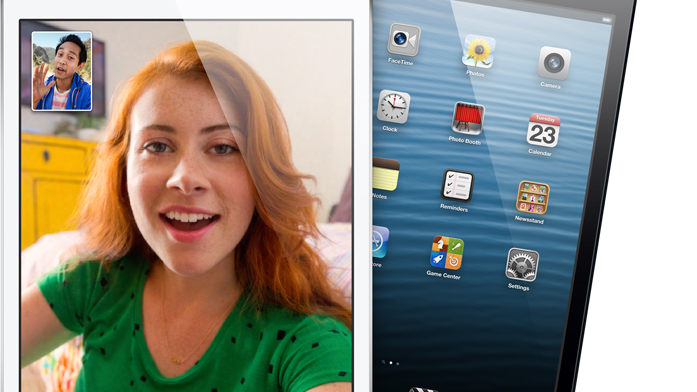
Will you buy iPad mini?
For those of you skydiving from the edge of space or returning from a week in some Fringe alternate universe, today Apple announced iPad mini -- so far the autumn's worst kept secret. Rumormongers got right the event and sales dates, product name and screen size but flubbed the price; sorry it's not $249 or $299, Bub. That's in another alternate reality. But do dream.
I just have to ask, again: Will you buy iPad mini? I look forward to the impact facts will have on your answers. In February I asked: "Apple is rumored to be developing a smaller tablet. Would you buy an 8-inch iPad?" About 56 percent of the 3,624 respondents answered "Yes". That's a high number. But much has changed since, with Google Nexus 7 joining Kindle Fire at $199, Amazon offering 8.9-inch tablets and Apple choosing to price higher than many people hoped. So I ask the question again, offering new poll and your chance to comment.
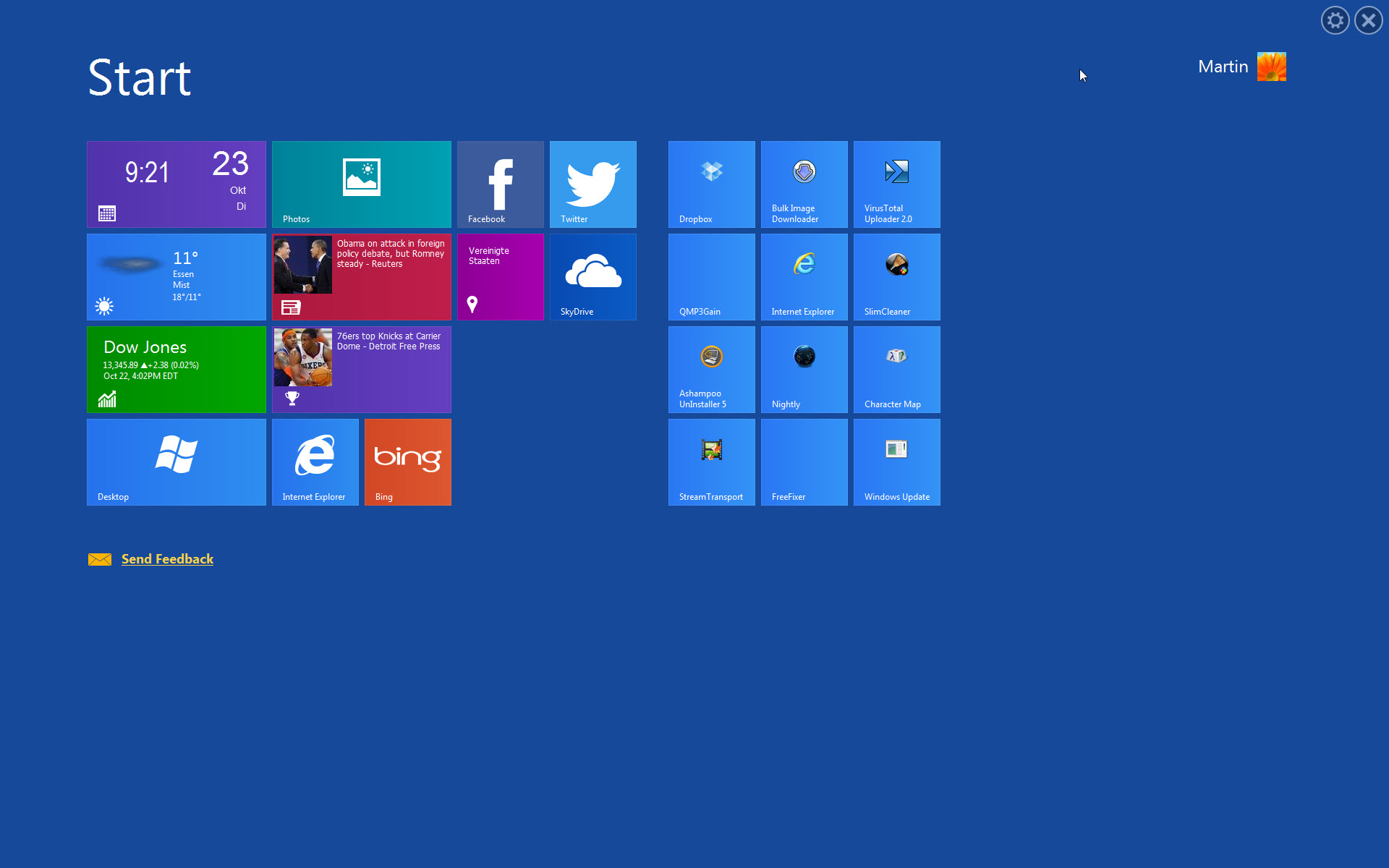
Get a taste of Windows 8 with WinMetro [mini-review]
Windows 8 is a highly controversial operating system and a big gamble for Microsoft that can largely be attributed to the new Start screen interface that the company introduces in it. The Start screen is not just a program launcher like the Windows Start menu was, as it is also the location where apps are run in. Apps, of which some come pre-installed with Windows 8 and others can be installed from the Windows Store, run in full screen on the interface. However, you can add your own shortcuts to the Start screen page, to open documents or desktop programs quickly from here.
If you like Windows 8's start screen but want to keep on using a previous version of the Windows operating system instead, you may be interested in a new beta program that IOBit just released. WinMetro basically adds a Start screen-like interface to versions of Windows that do not ship with it. The program is compatible with 32-bit and 64-bit versions of Windows XP, Vista and Windows 7.
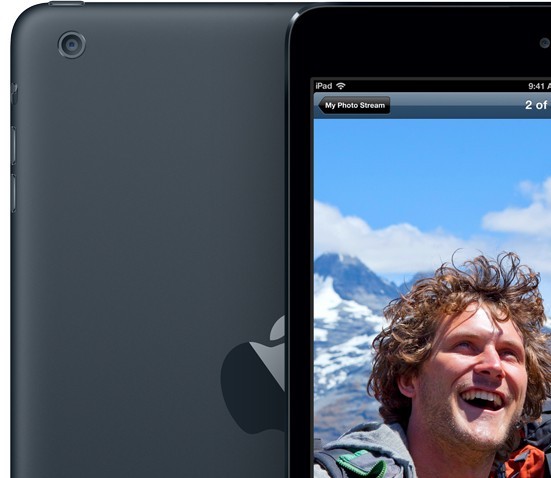
iPad mini is too big for Apple
"Don't upset the apple cart" takes on new meaning for the company Steve Jobs cofounded. Supply chain simplicity defined his leadership, starting with the many products axed after he took the interim CEO title in early 1997. While complexity creeped into some product lines over the years, mainly iPod, Apple followed a streamline approach. Until today. Tim Cook oversees a suddenly complex tablet lineup, following iPad mini's introduction early this afternoon.
Before today's event, Apple offered eight different iPad configurations -- that's without separately counting carrier-specific LTE models. The mini, which goes on sale November 2, brings the number to 14. It's a crowded lineup, with overlapping features and prices not seen from Apple since the early- to mid-1990s. Something else: Apple chose to price higher than what BetaNews surveys show people want to spend on a tablet, particularly in the mini's size class, and too close to other models, risking some sales cannibalization -- or worse, none at all, if customer confusion hurts sales.

This is how IBM intimidates employees
I struck a chord with my recent column on H-1B visa abuse, so soon follow up with an enormous post that tries to explain the underlying issues. But before then here’s something I came across that doesn’t quite fit that theme but was too interesting to let pass unnoticed -- how companies like IBM intimidate employees and discourage them from speaking up.
A few years ago there was a class action lawsuit against IBM. Thirty-two thousand server administrators were being forced to work overtime without extra pay. IBM lost the suit and paid a $65 million settlement. That’s just over $2,000 per affected employee before the lawyers took their share. Then IBM gave all those workers a 15 percent pay cut with the justification they’d get it back in overtime pay. Next IBM restricted the workers to 40 hour weeks so there would be no overtime.

'Chief Digital Officer' is the next hot executive title, says Gartner
For the last couple of years, there has been an increase in corporate executives being assigned to a post known as Chief Digital Officer. At the Gartner Symposium/iTxpo 2012 on Monday, market research company Gartner predicted that by 2015, as much as 25 percent of all organizations will have a Chief Digital Officer in their executive staff.
The first decade of the 2000's saw a dramatic rise in two technology-centric executive offices: the Chief Information Officer (CIO) and the Chief Technology Officer (CTO). Depending upon the environment in which they work, these executives do different things. Generally speaking, however, a CIO is the head honcho of information systems and IT, and a CTO is an individual chosen to bring broader technological vision, direction and management to a company or government, sometimes outside of the realm of what could be considered IT.

Tech companies pay next to no tax in United Kingdom
Despite making huge sums of money in the United Kingdom, many of the major tech companies based there pay surprisingly little tax. Exactly how little has only just started to come to light, thanks to investigations by several national newspapers.
The latest company to be exposed for paying a pittance in UK tax is eBay which, according to the Sunday Times newspaper, paid just £1.2m in 2010, despite its UK subsidiaries generating sales of close to £800m, and making an estimated profit of £181m.
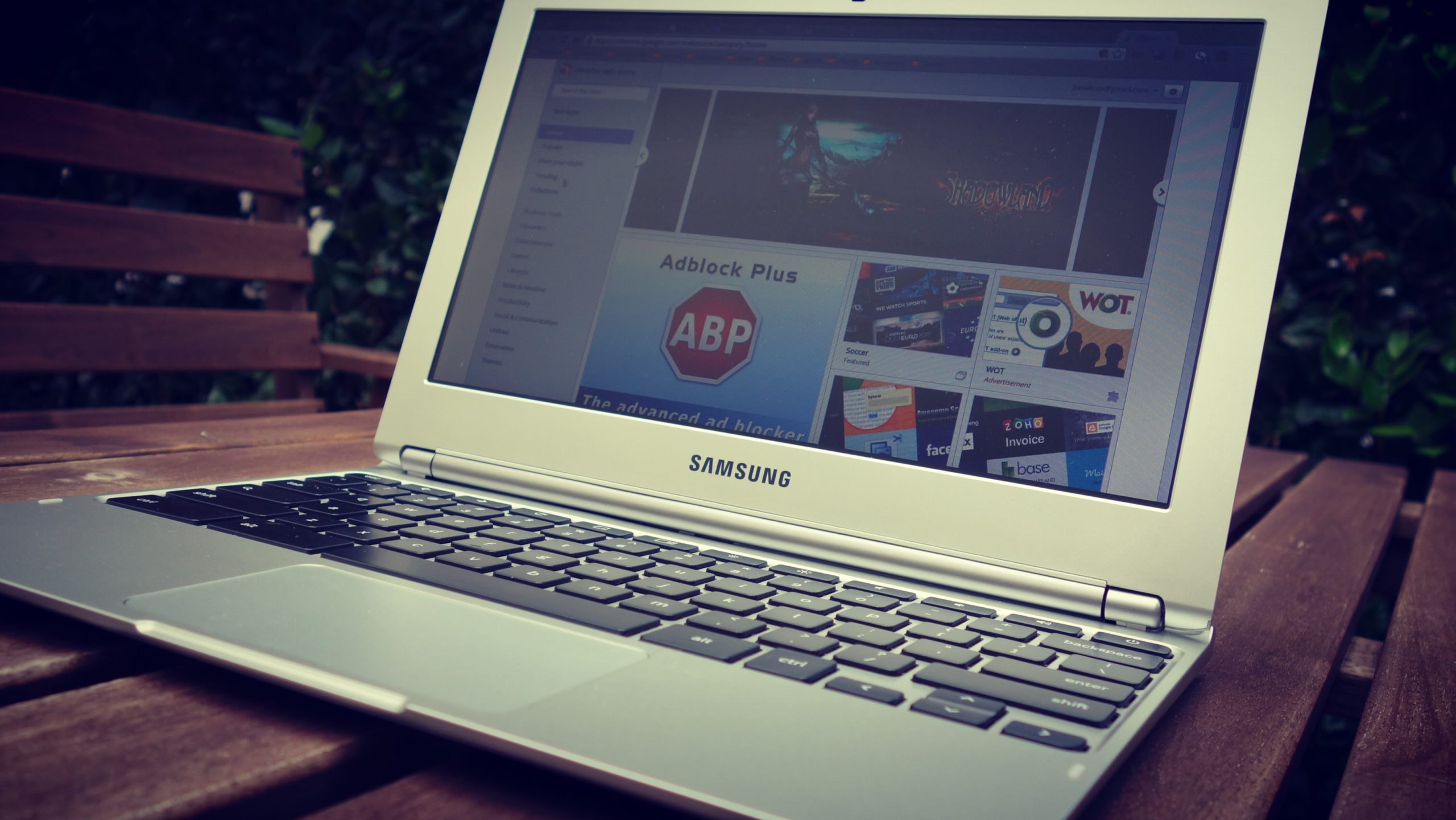
Google's $249 ARM Chromebook isn't 'for everyone', but could be for you [first-impressions review]
This week, Google will demonstrate real commitment to Chromebook, by bringing to market a lower-cost model with refined Chrome OS and package primed for mass-market buyers. Until retailers started taking preorders on October 18, the current generation Chromebook, Samsung Series 5 550, sold for $449 and its predecessor for $329. The newest model's $249 price is devastatingly appealing -- all but irresistible. It's almost a no-brainer "yes", particularly for most anyone wanting Apple MacBook Air's svelte size and empowering ergonomics without the hefty price tag.
But there's more here tempting than selling price. Chrome OS has reached near mass-market usability, supported by cloud apps and services that will be good enough for most people. Google even provides Chrome Remote Desktop (beta) for accessing other computers. That's right, you can connect to Macs or Windows PCs, run applications and get to data. While PC marketers and geeks focus on faster and bigger, real world performance is more measure of what you need than what they offer. The new Chromebook needs to pass the "good enough" test, and does so in many ways.
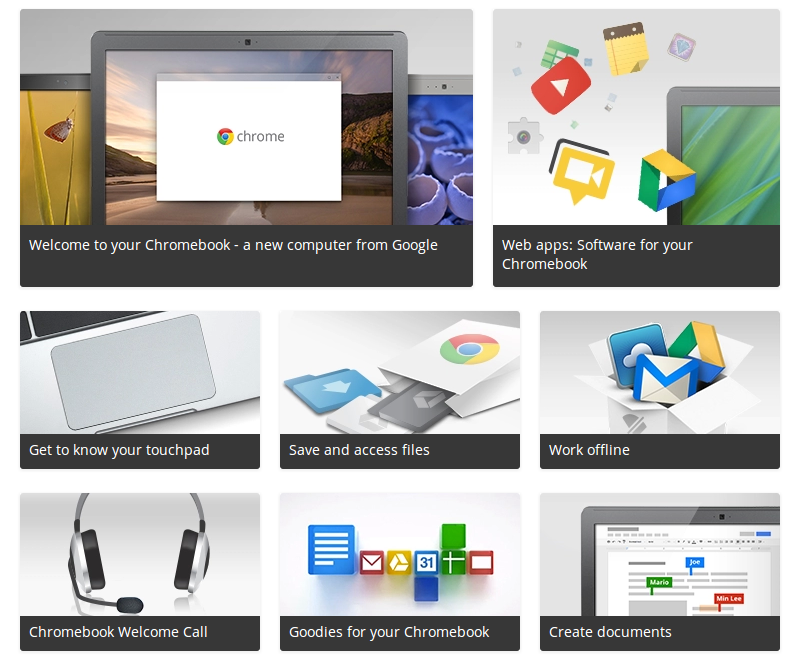
Will you buy $249 Google Chromebook?
Yesterday, Google suddenly unveiled, in cooperation with Samsung, the first ARM-powered Chromebook and for remarkably affordable price -- $249. There also is a $329.99 model, that includes 3G. Both are available for pre-order now from major retailers, and Google Play will join stores selling the WiFi-only model next week.
The question: Will you buy? It's the right time to ask, because the price is so appealing. From my initial testing, about 24 hours now, it's hard not to recommend this new Chromebook, if for no other reason than price. But as I'll further explain in my forthcoming first-impressions review, there are plenty of trade-offs for the price -- and benefits, too.
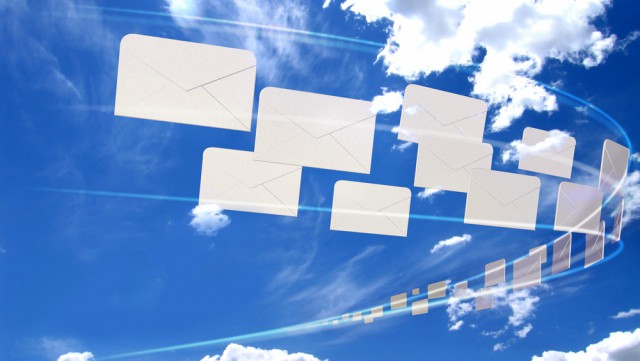
Google Apps vs Office 365: Which does cloud email better? [review]
Office 365 happens to be a product I think has a lot of potential. To be fair, it's Microsoft's second try at dedicated cloud-based email. Redmond first went toe to toe with Google Apps back in the days of BPOS (Business Productivity Online Suite), but they're distant cousins at best. With a few years' separation, Office 365 is Microsoft's answer to the growing threat Google Apps poses to Exchange.
The way I see it, Microsoft's torn internally. They are clearly still developing a wide range of Server and Exchange revisions on the usual upgrade cycle, but then signal a clear concession to the cloud by killing off Windows Small Business Server. While mixed intentions obviously represent the reality that they are innately a traditional software company, they realize that business is moving to the cloud whether they hold the leash or not.
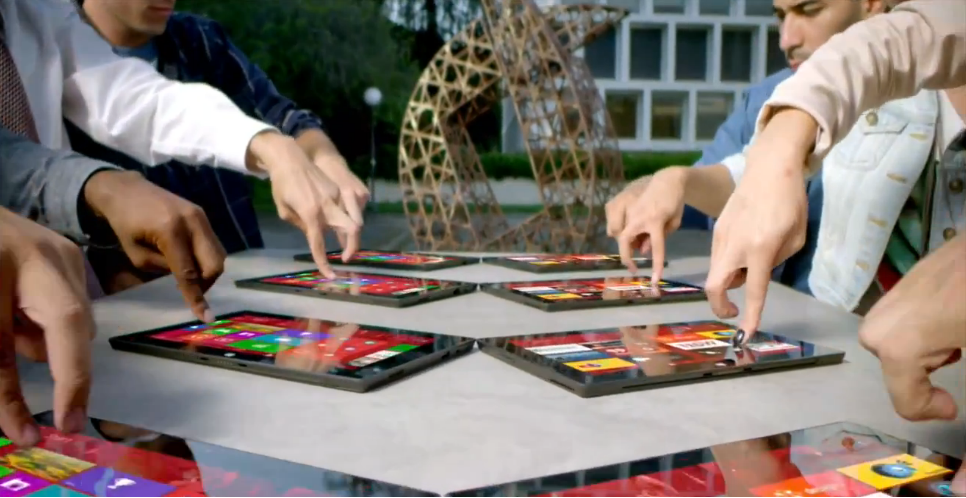
Who will buy Microsoft Surface RT? Could be you
Poll results to question "Will you buy Surface RT?" are in, and the numbers are surprising. Among the 1,530 respondents so far, 43.46 percent won't buy the tablet. That's actually a considerably lower number than I expected for a new device running a new operating system from an old technology company. Just shy of 24 percent of you already pre-ordered -- and good thing. Microsoft apparently already sold out the entry-level, $499 model, which delivery date is now "within 3 weeks". The other two tablets still deliver by October 26, launch day.
Another 18.1 percent of respondents plan to buy within three months, which works out to 41.84 percent between now and the end of January. If Surface really does that well, Microsoft will have helluva hit. If. What people say they will do isn't often what they do. Buying polls reflect intentions, which can change for all kinds of reasons. Little things, like early reviews, social media buzz or cash to spend.
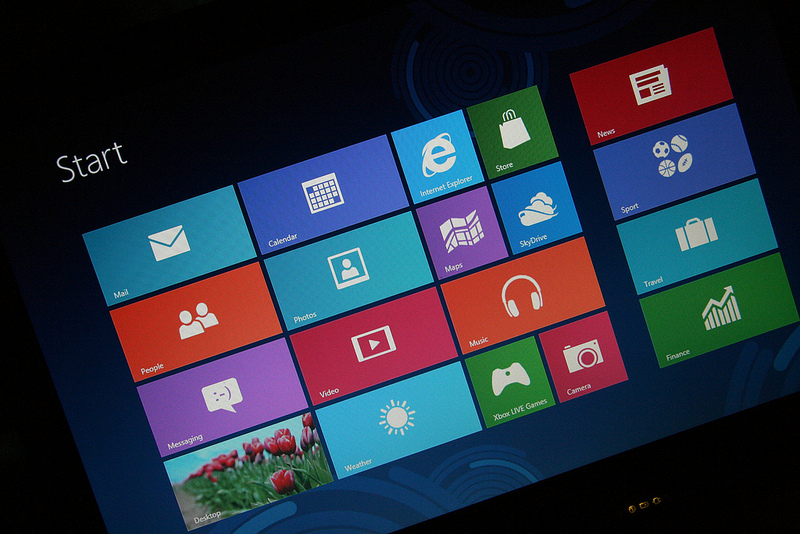
5 big reasons businesses should consider Windows 8
If you think you read my title wrong, take a second look. You'd think from all the overblown attention that the Modern interface is garnering, that I was going to focus another drab op-ed around that sole feature. Yes, the Modern UI is a radical change and will turn a lot of people off. But let's not forget that with every new Windows release comes features that actually don't get the time of day. I think a few of these deserve a sliver of attention.
We've been down this road before. Let's not forget that the introduction of the Office ribbon menu system was considered shocking back in 2006, and years later a majority of users have accepted and embraced the changes. Apple received similar kickback on its radical iPhone design back in 2007. I truly believe the heat on Windows 8's Modern UI will come and go like the rest of modern tech's evolutionary moments.
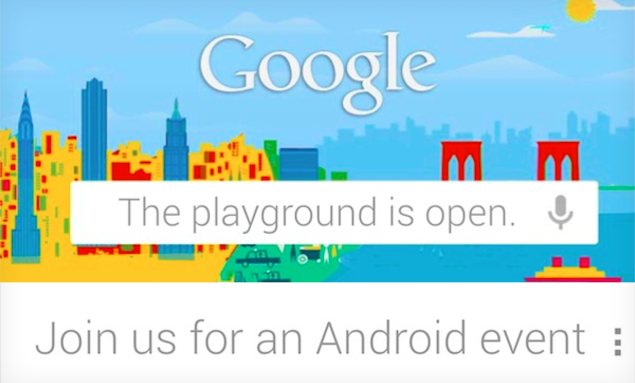
Google looks to steal Windows Phone 8 thunder with competing Android launch
Could the end of October be any more jam-packed? October 29, same day Microsoft launches Windows Phone 8 in San Francisco, Google will hold an event in New York for Android -- presumably for the next Nexus device(s), just about the worst kept tech secret(s) of the month. Microsoft just can't catch a break. This week, Apple sent out media invites for an October 23 shindig, possibly for iPad mini, coming three days before Microsoft launches Windows 8 and Surface tablets.
Yeah, it's a tough month to be Microsoft -- what, with the company's future hanging on the three products and post-PC, connected-device era stumpers Apple and Google looking to dampen Windows' big days. But what a month for gadget geeks -- and the October 26 and 29 events coming on my three sisters' birthdays (twins, in case three on two days puzzles you): Android devices, iPad mini, Surface, Windows 8, RT and Phone. And, hey, what about some of those new smartphones, like LG Optimus G?

The debate is now Chromebook vs Surface, not iPad, for K-12 education
The cat's out of the bag, and we can all stop guessing as to what the Surface RT will cost. Microsoft confirms many things, namely that Steve Ballmer was spot-on with his estimates on Surface pricing roughly a month ago. The Surface RT is going toe-to-toe with the iPad down to the very last penny. That's a good thing.
One thing I'm curious about is how Surface will change the way K-12 looks at computing devices for the next generation of students. I've already penned my thoughts on why I believe the Surface could very well outshine the iPad in education. A big part of this winning equation has to do with the ecosystem that surrounds a given technology.
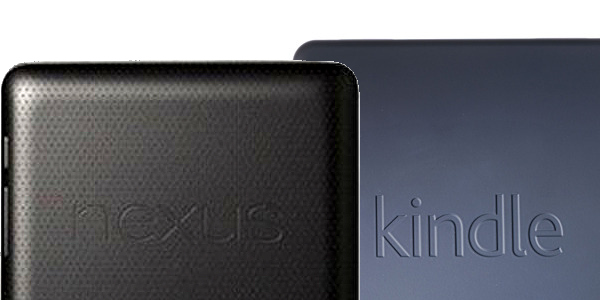
Tough luck, iPad, Android owners read tablet publications more often
More Americans are discovering what I did, after buying the original iPad more than two years ago: Reading ebooks, magazines and newspapers on a tablet is an immersive experience and often much more satisfying than print. Today, comScore says that in August, two out of every five US tablet owners read a newspaper or magazine and one in 10 did so almost every day.
The numbers' meaning is greater when taken in context of another. Pew says that during the same month, one in four Americans used a tablet (22 percent as owners, 3 percent borrowing one belonging to another household member). Make no mistake, magazines and newspapers are going digital in ways like nothing seen on the Internet, because of publishers' ability to deliver richer content -- at that, more frequently -- and actually make money doing so.
